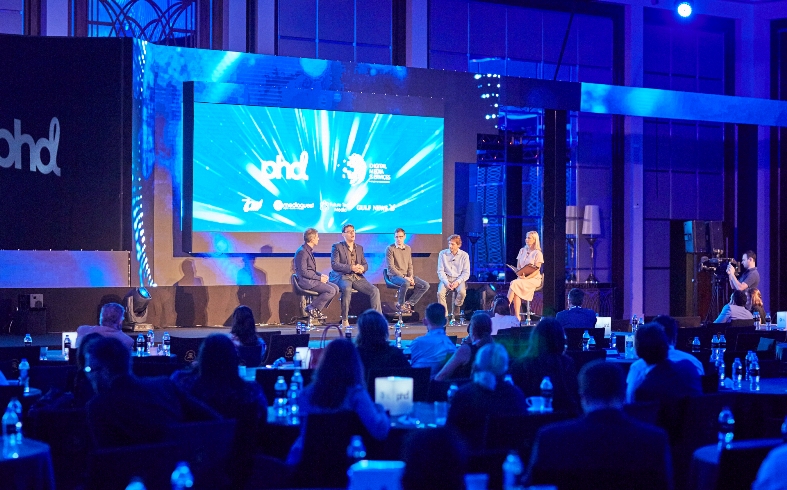You can either be scared or excited about the opportunities the future presents, but you can’t sit this one out because it is coming sooner than you think: These were the words of caution from David Rowan, Editor of Wired UK and speaker at the seventh edition of BrainScape, PHD’s annual thought-leadership conference.
Held on October 10 at the Westin Habtoor City in Dubai for an audience of over 400 marketing and media professionals, the conference explored the implications of an inevitable technological revolution that will transform the way consumers live, work and transact.
Mr Rowan opened the conference with a presentation on the technological forces that are already disrupting the way people work and live. He projected the audience into the future by explaining the impact of these trends and showcasing showing the types of products and services that can be expected in the years to come. “We’re moving from science fiction to just another product, all thanks to how easy startups can get to market these days,” he said.
He explained that startups have greater agility to respond to future trends. “Startups are fighting for survival every single day and that keeps them way ahead of how a corporate works,” he observed.
Technological theorist and author, Tom Chatfield, addressed the societal and ethical issues coming from a world driven by technology, looking particularly at relationships with and through technology. “We must respect the highly emotional nature of these relationships and ensure they are based on maximizing the skills that bind us — human creativity and sociability versus machine capacity, speed and connectivity,” he explained. Reassuring those who feared de-humanization through the over-reliance on machines, Mr Chatfield asserted that living in a networked age means there is less we will do individually and more that we will do together.

Going further into the notion of technology versus humanity, Daniel McDuff, a researcher on state-of-the-art sensing and machine learning tools at Microsoft, showcased technologies that can read human emotions and provide incredibly valuable data. “Something as simple as the smartphone in your pocket can measure your physiological state and capture data on what gets your heart rate up; it’s very scalable,” stated Mr McDuff, adding algorithms could outperform humans in detecting certain objects, situations or emotions.
“Understanding how someone reacts to your products is the first step to tailor a consumer experience to that individual at that particular time,” Mr McDuff said.
“Where humanity is going to have a role, it’s going to be in the field of experiences and it’s these experiences that brands will want to associate with or create for themselves,” said PHD Worldwide’s Chief Strategy Officer, Hugh Cameron. His session detailed the tangible steps that businesses can take to enhance interactions with their consumers through their communications planning. He added, “Planners and strategists will become the designers of more streamlined consumer experiences, using data and talent to enhance human journeys. At PHD, we strongly believe that a brand’s success comes when humans, data and AI work together.”
“This year, the speakers at BrainScape encouraged marketers to start thinking about the forces that are already transforming the way we work,” commented Elda Choucair, CEO of PHD MENA, adding, “The speed of transformation can be quite challenging and this conference serves as a platform to accelerate the awareness of and the response to future-shaping developments among business and marketing professionals. It’s an advance warning, a wake-up call to help our stakeholders gain a first-mover advantage by future-proofing their strategies and better preparing themselves for what is yet to come.”





